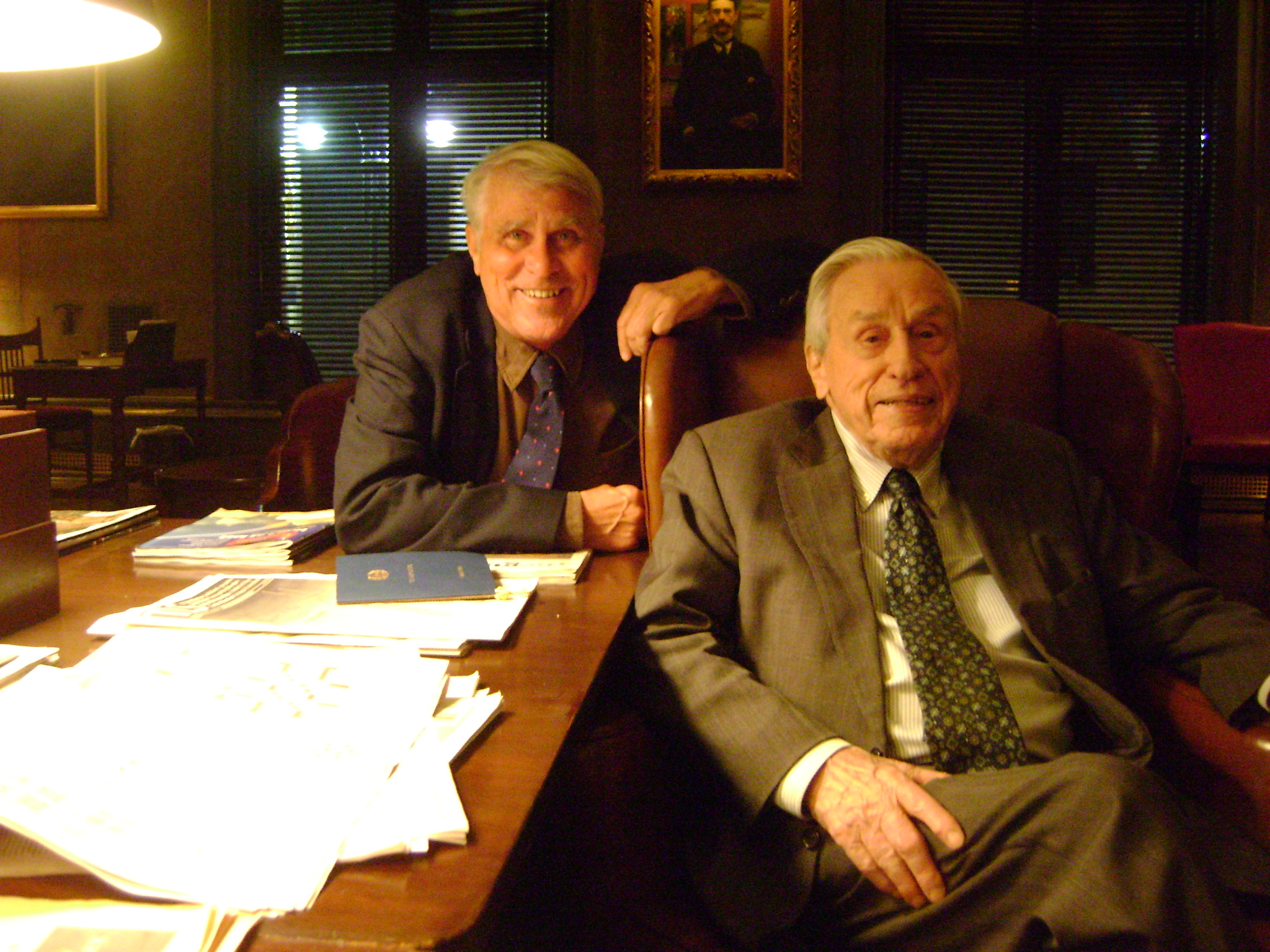
Ainslie Embree (1926-2017) was chair of Columbia University’s history department, interim dean of the School of International and Public Policy, member of the Council on Foreign Relations, Counselor for Cultural Affairs at the U.S. Embassy in New Delhi, and editor of the Encyclopedia of Asian History.
Once when Ainslie was striding along in his usual brisk, authoritative way on the sidewalks of Manhattan’s upper West Side near the Columbia campus, I had almost to trot to keep up with him. Why, I asked, did he walk so fast?
“In this city,” Ainslie proclaimed, “you have to move quickly, keep your eyes straight ahead, and act like you know what you’re doing.”
That struck me as good advice, not just for surviving in the city but in life in general. And I took it as one of many of Ainslie’s words of wisdom.
Yet in many ways, what I learned most from Ainslie in the forty-five years that I have known him as a friend and mentor, was quite different. It was his patience and attentiveness that made him such a striking presence in the academic world in which he reigned.
Take, for instance, his role at conferences. He would install himself at the lobby bar in the main conference hotel and hold court. Friends and colleagues would pass by, pause, and then share some news or simply acknowledge his presence.
To see him function there or at the faculty club or the Cosmos Club was to watch the master of networking. He seemed to know everyone, and everyone wanted to bend his ear, share some political gossip or international intrigue, or gain some advice on their careers. He had a way of making each person feel that he was listening only to them, and listening carefully.
He was patient in scholarship as well. I helped him edit his essays into two books, and at times it seemed that he would not let go. He wanted to rewrite one more time, add another reference, tweak another sentence so it was just right. And he succeeded; his essays are masterpieces of careful and precise scholarship.
And yet, if one looks back at the whole of a long and productive career that lasted almost a century, one sees a different arc. Though the details are slow and precise, the overall effect is transforming, shifting from academia to public service, from history to current affairs, from local issues to global concerns, bearing loyalties that could at once be Canadian, American, and South Asian. And the cumulative effect is a well-crafted life, one of purpose and product that will long endure.
So he was right, what he said that day on the busy streets of New York City. He survived because he moved quickly, kept his eyes straight ahead, and acted like he knew what he was doing.
My 2009 videotaped interview with Ainslie can be found on YouTube at https://www.youtube.com/watch?v=BeVxoqPDc-0.
